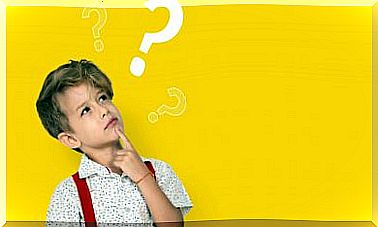How Mandates Influence Parenting

During the education of our children, we place in them many expectations, dreams, projects and objectives. Sometimes without realizing that all this becomes for them obligations that they must fulfill, and ways of being that they must adopt. It is important that, as parents, we reflect on how mandates influence the education of children.
These mandates, many times, determine, to a greater or lesser extent, the possibility that they build their own life project and freely choose the way they want to be happy.
Social and family mandates
Both society and religion, and the family itself, establish and transmit from generation to generation, explicitly and implicitly, many mandates; they are about obligations, values, ways of being, thinking and behaving that are generally accepted by the vast majority and are, at first glance, unquestionable.
Now, it happens to many people that, at some point or stage in their life, the mandates come into contradiction with their own personality and goals. These mandates are adopted, but only as a facade that hides feelings, opinions and thoughts that have nothing to do with the originals.

Thus, whether or not to break with certain social and family mandates will depend on each person and their options, conditions, possibilities, and their ability to do so.
And, mainly, of their need to be oneself in a world full of codes and values that, sometimes, lead us to act like the majority when we do not want it or do not share it. And of legacies and beliefs that for one have no support or justification, rational or emotional, whatsoever.
Those eternal mandates that influence the education of children
The mandates are diverse; from the most superficial to the most existential. And they have a very strong emotional component because, almost always, they are associated with known people and relationships. And, furthermore, because they interfere with the construction of one’s own identity. Thus, we can talk about mandates related to:
- The political party with which we have to identify and the football club that we must follow and associate with because parents and grandparents have done so.
- The way of dressing, as it has always been in the family.
- The religion that we should follow and how we should behave according to it.
- The career that we must study or the profession that we must choose, in the line of parents or grandparents.
- What we must think and comment on various issues and even what we must keep silent.
- The type of relationships we should maintain with others, how much we can be wrong or in what way we should feel, or how and to what extent we should express it.
- Other expectations related to fashion and social networks, or to gender, custom, social class or ethnicity.
How mandates influence the education of children
The mandates not only imply for our children the obligation or duty to do or be something that they do not want to satisfy their parents. The mandates become real obstacles in the construction of the personality and identity of the children because they suppose a lack of understanding at a rational level and imply a cost and wear on an emotional, relational and affective level.
Thus, in more practical terms, we could say that mandates influence the education of our children by generating in them:
- Frustrations caused by contradictions between what they internally want to be or do and what they know their father or grandmother would like them to be.
- Feelings of guilt or conscience for feeling or thinking differently from how it is done within the family nucleus.

- Laziness, unease or sadness knowing that you will never be able to choose this or that career or profession, even a hobby or trade because it is not something accepted in the family.
- Feelings of rejection, more or less unconscious, towards family members. Product of the obligation to comply with mandates, more or less covert, and that are not shared.
- Reactions of anger and anger with others and with the world when feeling that one must gradually abandon their own dreams and projects to feel accepted and approved by the family.
- Attitudes of greater rebellion in the face of disapproval and misunderstanding of parents regarding the ways of dressing, tastes or hobbies.
To end…
As parents, we are often not aware of the importance of mandates in building the personality of our children. And, if we really want their happiness and that in the future they can be free and full beings, we must let them be.
The challenge of parents in the education of their children is not to burden them with a mandate, but to trust them and educate them to be good people, regardless of what they study or who they choose to love, or not, even if they challenge and abandon legacies along the way. cherished family traditions and thus jeopardize values and ideologies, no matter how unthinkable this may seem to parents.










